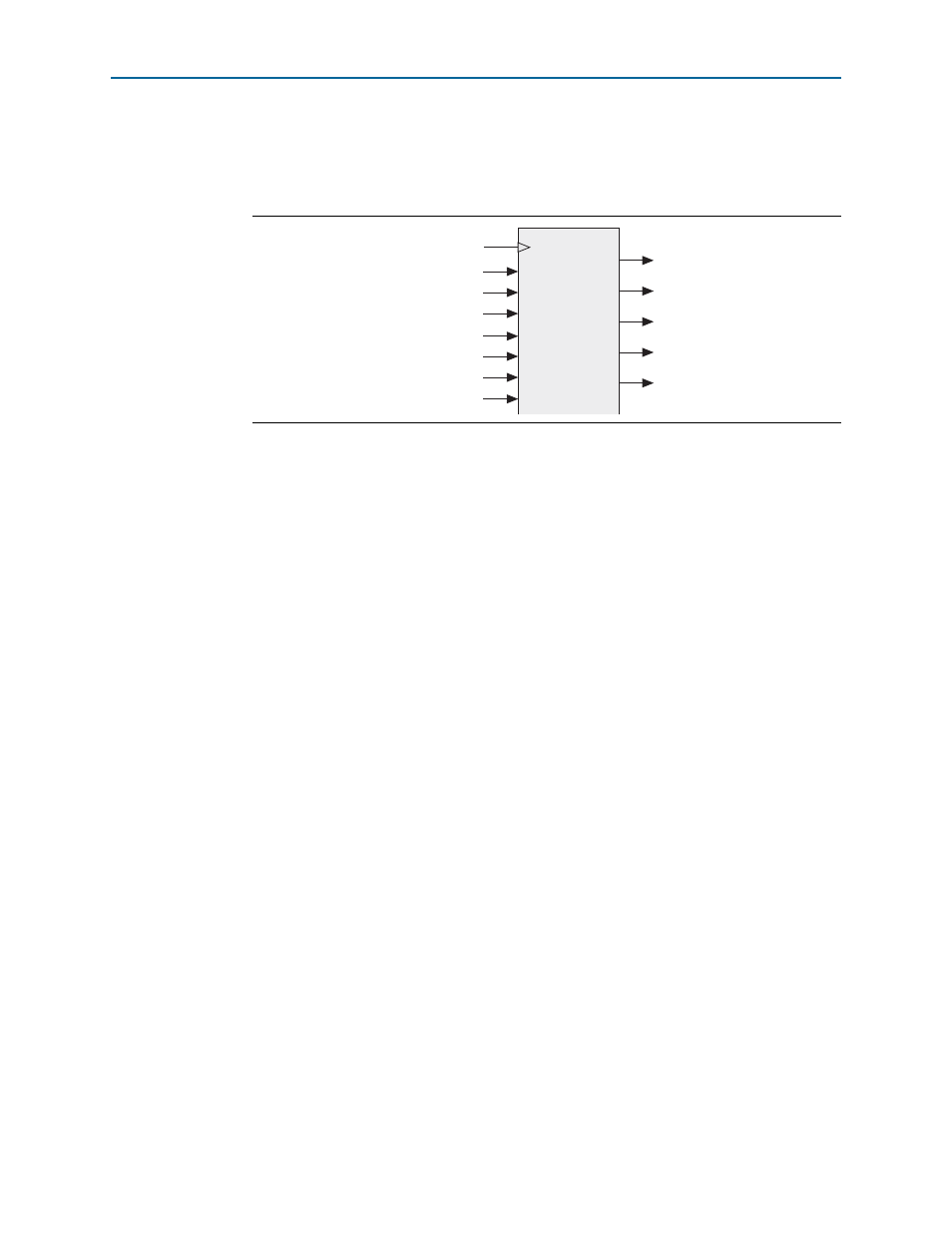Disparity –4 cascaded encoding –4, Disparity, Cascaded encoding – Altera 8B10B Encoder/Decoder MegaCore Function User Manual
Page 22

3–4
Chapter 3: Specifications
Functional Description
8B10B Encoder/Decoder MegaCore Function User Guide
May 2011
Altera Corporation
The encoder encodes invalid characters in the same way it encodes Idle (K28.5) codes.
The decoder treats invalid characters as Idle codes.
Figure 3–3
shows a block diagram of the encoder.
Disparity
The running disparity can be forced to positive or negative, allowing the user to insert
a special resynchronization pattern, or disparity errors.
When the
rdforce
input is asserted, the value on the
rdin
port is assumed to be the
current running disparity. Setting
rdin
to 0 forces the encoder to produce an encoded
word with negative or neutral disparity. Setting
rdin
to 1 forces the encoder to
produce an encoded word with positive or neutral disparity.
Cascaded Encoding
Two encoders can be cascaded to allow for 16-bit word encoding. The encoders are
cascaded by connecting the
rdcascade
output of the most significant byte (MSByte)
encoder to the
rdin
input of the least significant byte (LSByte) encoder, and by
connecting the
rdout
output of the LSByte encoder to the
rdin
input of the MSByte
encoder. These connections ensure proper running disparity computation. The
rdforce
inputs must be asserted (active high) for the encoders to take into account the
value on the
rdin
inputs, rather than use their internally generated running disparity.
Both
ena
inputs must be high or low at the same time. The
kin
[1]
signal relates to
datain[15:8]
, and
kin[0]
relates to
datain[7:0]
.
Figure 3–4 on page 3–5
shows two
encoders connected together to perform cascaded encoding.
Figure 3–3. Encoder
clk
reset_n
kin
ena
rdin
rdcascade
rdout
valid
kerr
datain [7:0]
dataout [9:0]
rdforce
idle_ins
